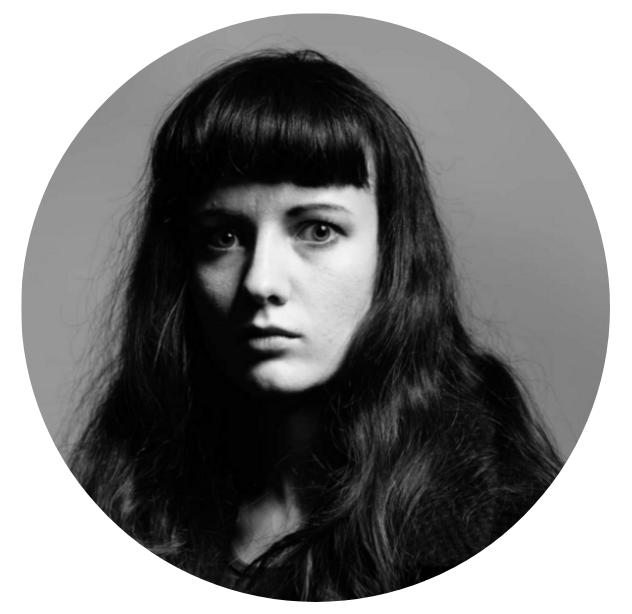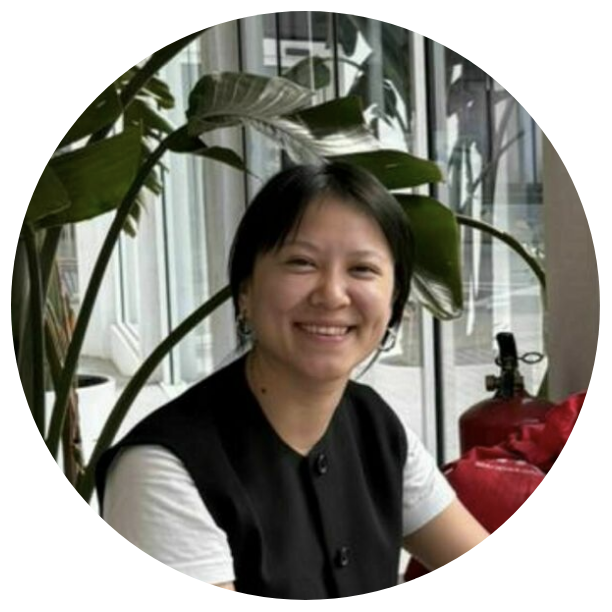Daryna Gladun

Who are some of your favorite poets?
Federico García Lorca, Wisława Szymborska, Charles Simic, Oleh Lysheha, Ilya Kaminsky.
If you could only recommend one film to someone, what would it be and why?
Oh, it depends on the person and our relationships. If that person annoyed me (or feels like doing some good-old self-torture), I would recommend the latest Star Wars (The Last Jedi). The one that is magically constructed of special effects and plot holes. I watched it 3 times in different languages and yet couldn’t figure out a more polite way to talk about it.
What’s your favorite book you read this year?
I would say it is Blotter by Scotish writer Oli Hazzard.
What can you tell us about any writing projects you’re currently working on?
I am continuing working on my sixth poetry collection (and the first one written in English) Ukrainian Beauty, though I have changed the title into How to pronounce silent Y as I am delving deeper into the questions of isolation, invisible cultures, and archeology of the future.
Do you have a favorite literary journal (print or online)?
I would say Liberties because they publish texts that echo my personal research.
Why do you think it’s important to read poetry in translation?
It’s important to learn languages, travel the world and encounter new cultures. We live in a globalized world, after all. Reading poetry in translation is simply cheaper and less stressful. Every poem is a capsule of a foreign culture, that’s why you can celebrate diversity from the comfort of your language while your mind travels. I myself started learning Polish for the sake of reading Wisława Szymborska. Even though it was a rewarding journey, I would appreciate it more, if we had at least one book of her works translated into Ukrainian.
Do you have a favorite Action Books title?
I love all of them equally. (Have you seen those books? They are gorgeous!) I would highlight Aase Berg’s essays on poetry Tsunami from Solaris which I am currently reading. I loved the idea of multiple manifestations of scars in nowadays culture. Poetry being a scar.
What are you most looking forward to about working as an Assistant Editor of Action Books?
I am looking forward to reading the books on various stages of production. It is not yet a book. It doesn’t yet have a definite form. It still can become so many things, but it is already aware of itself, of what it is and what it communicates to the world.
Helen Quah

Who are some of your favorite poets?
My poetry taste is eclectic but ranges from British contemporary poets who transgress form, Bhanu Kapil, Rachael Allen, Will Harris to John Ashberry, Wong May, Octavio Paz, Sawako Nakayasu. But I have to say that reading the work of Don Mee Choi and Kim Hyesoon, their partnership and individual work, really changed the way I write and think about poetry as a spectral, disruptive force.
If you could only recommend one film to someone, what would it be and why?
Insanely difficult question. This depends probably on who I was talking to but given the recent death of Gena Rowlands in August, an actress I adore, I would have to choose one of her films. So probably A Woman Under the Influence for her searing performance and the odd relational interactions within the cast which included her husband/director John Cassavetes’ mother. Its an arresting performance of societal responses to female psychological distress, a complicated film that has its problems but ultimately worth it even just to see Rowlands dancing in the garden with the children’s balloons…
What’s your favorite book you read this year?
I read Harry Sonny Ladoo’s No Pain like this Body from 1972. A novel set in Trinidad exploring the lives of a Hindu rice-farming family. It was a dark, visceral novel about the violence of indentured migration and how this often manifests as male domestic violence, the dialogue is raw and unflinching.
In terms of poetry I must also mention Pee Poems by Lao Yang (translated by Lynn Xu and Joshua Edwards) as well as Gboyega Odubanjo’s debut collection Adam published posthumously this year. He was a shiningly original British talent and you can see that on every page of that sinuous and deft book, running murkily as the Thames.
What can you tell us about any writing projects you’re currently working on?
I am currently writing in and around the history of indentured labourers that migrated to the Caribbean from India and China, part of my family history. But really I am writing very strange weird poems that are a reflection of having moved to the US for the first time. I am interested in how the language of medicine may begin to infect my work, having been working as a doctor for the last four years. How we talk about the heritability of illness and how this might interact with ancestral ghosts/mythologies of the West Indies. I keep coming back to the medical word ‘comminuted’ which is a term used to describe a bone that has fractured into multiple parts.
Do you have a favorite literary journal (print or online)?
I read Granta often, Bath magg up until recently in the UK!
Why do you think it’s important to read poetry in translation?
As Don Mee Choi writes, translation is an ‘anti-neocolonial mode’ of thinking. I think of poetry translation as the same as in hospitals when translating the patient’s description of their symptoms, their pains, their anxieties, their body’s history, where it started aching. The most important and transgressive decision is the decision to attempt to understand one another. Poetry in translation is the attempt that opens us up to other ways of thinking/seeing.
Do you have a favorite Action Books title?
I have to say Don Mee Choi’s The Morning News is Exciting – I return to it often, a cartwheel of a book! Also Hiromi Itō’s Killing Kanoko, a stomach-punch. I am currently reading Aase Berg’s collection Tsunami from Solaris: Essays on Poetry which is incredible so far.
What are you most looking forward to about working as an Assistant Editor of Action Books?
I am thrilled to be working as an Assistant Editor at Action Books. It is a press whose ethos I deeply believe in and who create just fabulous poetry books. I am looking forward to seeing the new books this year and hopefully helping to organise events with the authors and translators to discuss and celebrate them!